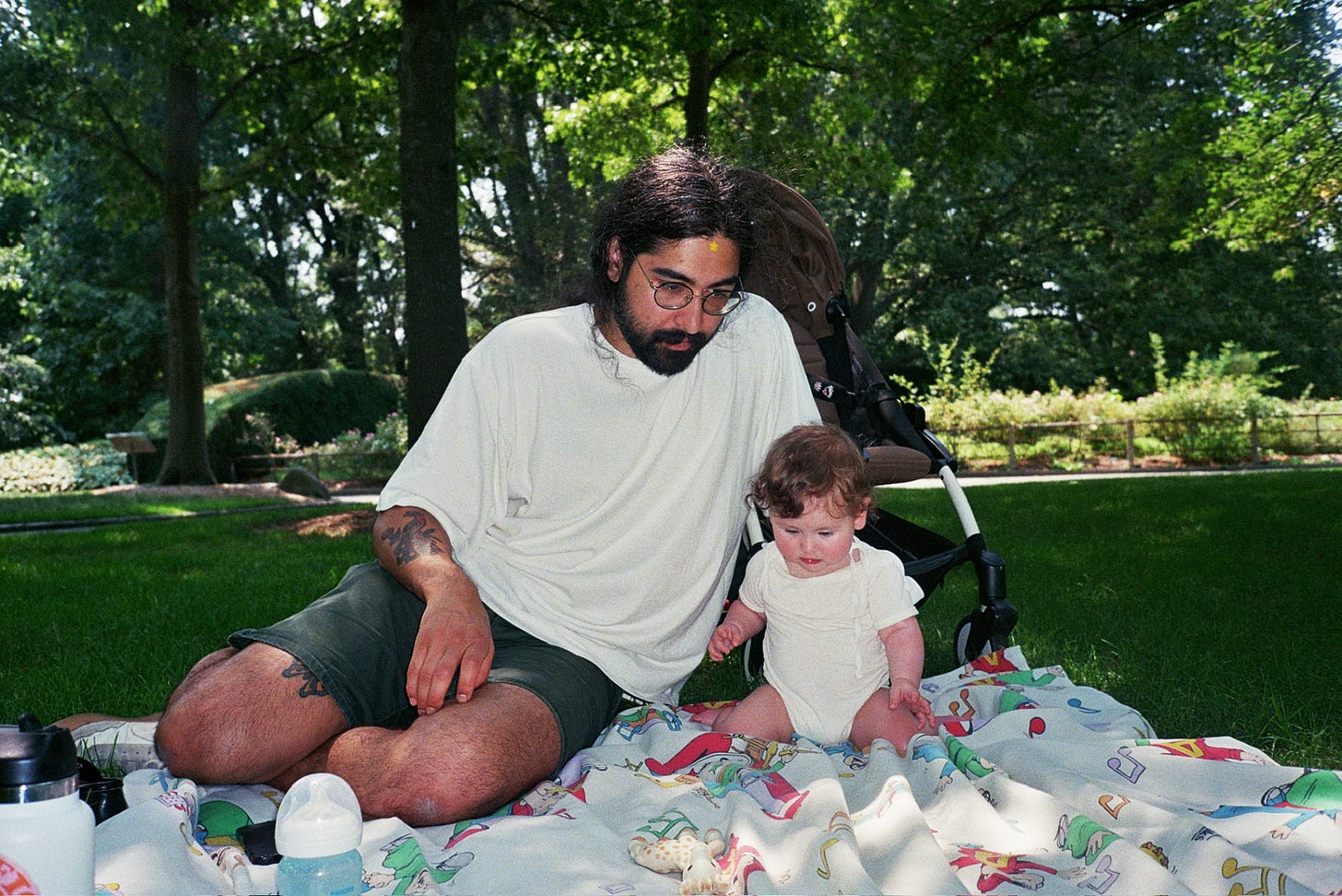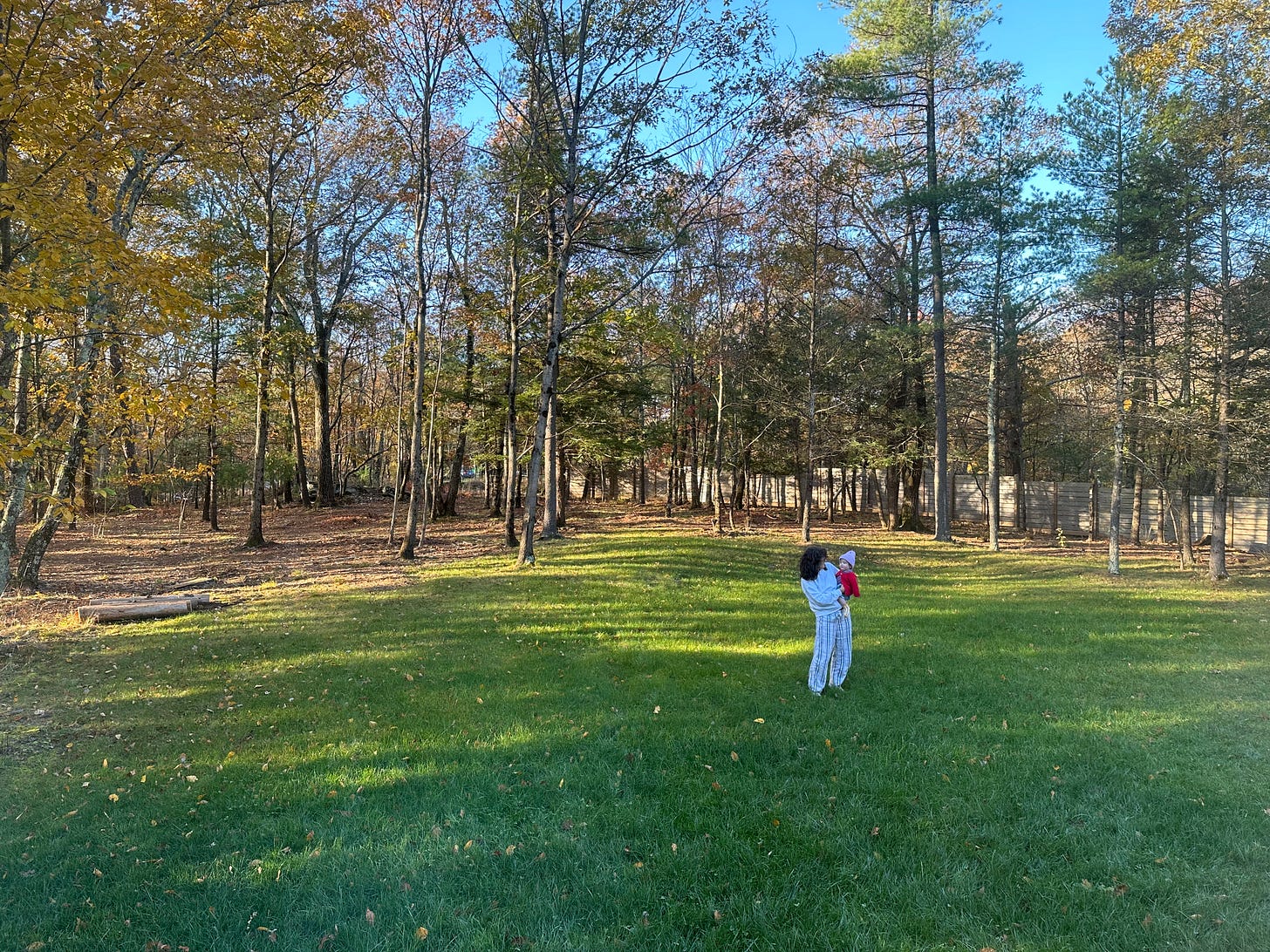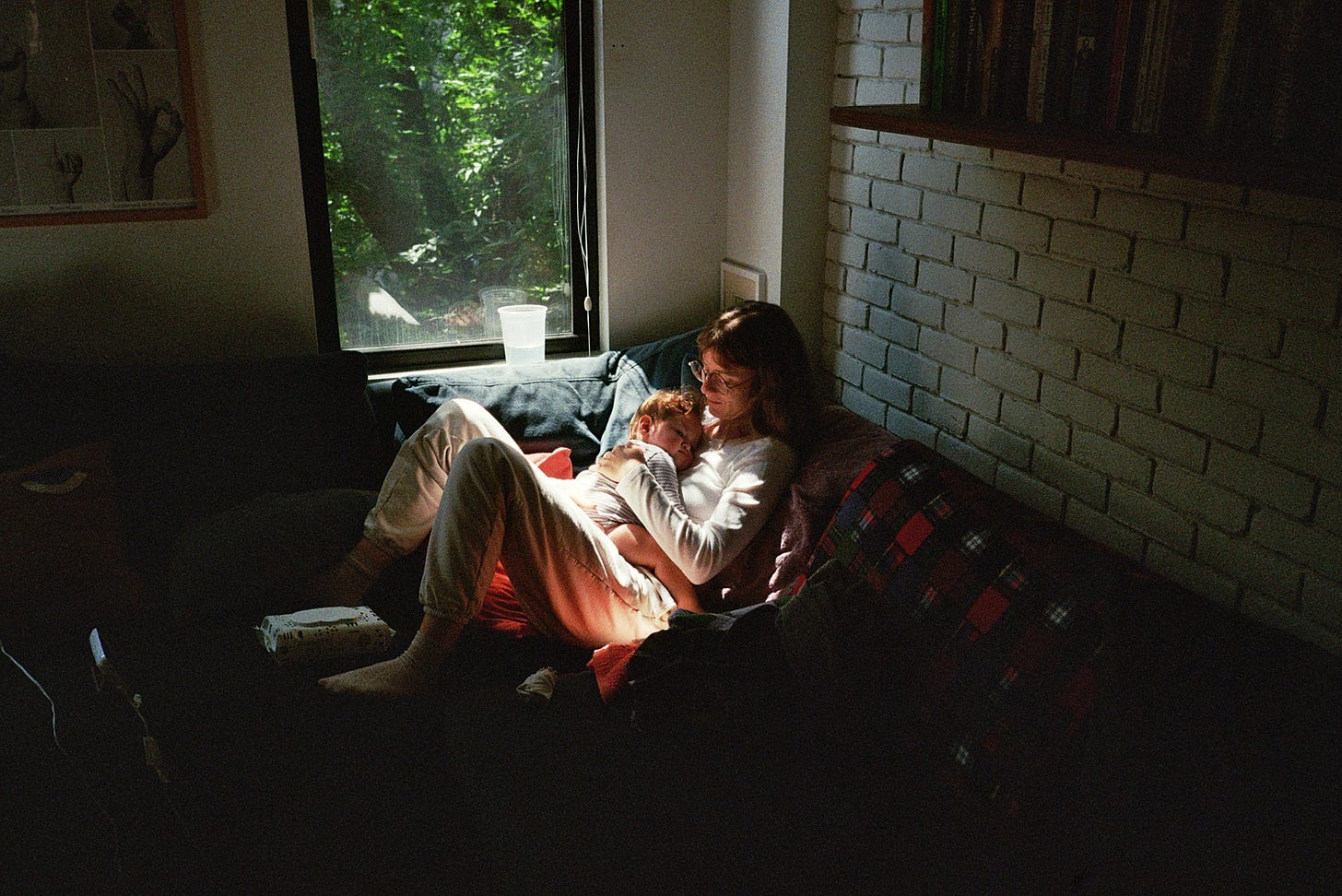Good morning!
Over the last year, I’ve become obsessed with parenthood’s PR problem. For every parent talking about what it’s like to have kids online, there’s an audience analyzing their commentary, deciding whether it feels realistic or dramatic, authentic or fraudulent. The judgments are varied: Parents are either accurately or inaccurately making parenthood look rosy or miserable. The parents might be talking about it too much—“making parenthood their personality”—or they might not be talking about it enough, including all the right details so people know what it’s really like. “No one is talking about this!” is a common refrain employed by parents and non-parents alike, despite the fact that everyone seems to be talking about everything all the time, and often at a cost.
This conversation is supposedly about parents, but mostly it’s about mothers. When I became one myself last year, and transitioned from the one judging motherhood commentary to the one potentially being judged, I became more interested in the chasm between these two groups. I assume this is mostly because my own prior impressions of parenthood are still fresh in my mind, which means I’m reminded all the time of how wrong I was about so many things, like how your life changes when you have a kid, or why people behave or talk about it in the ways they do. Awareness of this disconnect has made me twitchy and paranoid, always wondering what people are now getting wrong about me. This follows a karmic logic: The judgmental become the self-conscious. Now I’m paying my dues.
There’s a more generous reading, though, of why I’m interested in this apparent information gap between parents and non-parents. As someone perennially inspired by emotional experiences that I find difficult to explain or believe to be commonly misunderstood or oversimplified, parenthood has become a kind of white whale for me as a writer, something I plan to eventually capture, but fear I never actually will. So I return to this PR problem almost by artistic impulse. I want to explain everything, I wish I could. Not just to connect with other parents, but to speak to people who don’t have kids and want to understand it better—or, maybe foolishly, even those who don’t. I’d also like to understand it better myself.
In the last two years, I’ve written 11 newsletters on motherhood. Pre-baby, I wrote about trying to get pregnant, accepting my desire for kids, getting pregnant, and preparing to give birth. Post-baby, I wrote about giving birth, my first night home, breastfeeding, taking too many baby photos, tracking the baby’s breaths, some lessons I’ve learned so far and, less personally, the head trip of infertility. I thought listing everything out might make me realize I’ve said a lot, but all I notice is how much is missing. It’s funny that, at times, I’ve been nervous I was talking about it too much (i.e. “making motherhood my personality” or “becoming a mommy blogger”—something I reflexively tried to distinguish myself from in my maternity leave hello in some lame attempt to remain accepted by non-parents). But each of those essays feels like a glass dropper drawn from an ocean. There’s so much water left it makes me want to puke!
Last week, I ran an Instagram poll asking my followers which statement resonated more: that parents make having a kid seem like heaven or that parents make having a kid seem like hell. For the ~7,000 participants, the vote was basically split, but when I re-ran the poll and offered a third option, “Somehow both? But something still feels like it’s missing,” two-thirds of voters picked that one instead. Only 10% said they were happy with the commentary they got. Hundreds of people sent me DMs to explain further, way more than I expected, and as I read through their messages, I found myself feeling a little ill. Many were lovely and useful, but I was startled by how comfortable some people felt judging mothers without really knowing what they’re going through—for complaining, for losing themselves, for faking it, or being boring—and then unsettled to remember how comfortable I used to feel, too. Sometimes those same messages contained really thoughtful or compassionate perspectives. I sensed most had no idea they might be offending me. About halfway through, I had to take a break. (I have yet to finish.)
This week, I’ve been upstate with some family and friends. Before the trip, I was excited for everyone to get to spend extended time with Sunny—to see how transcendent it could be to live with a baby. Maybe they’d develop a deeper bond with her by sharing in her care, fall for some new quirks, witness all the little feats of babyhood I’m always claiming she “normally” does (“just not right now!”). But so far Sunny’s been uncharacteristically temperamental, not going down well for naps (“never happens!”) or crying hysterically at random moments (“so unusual!”). Snot drips from her nose constantly and all over everyone; she’s recovering from a cold. She’s been adorable and fun too, but mostly I’ve been focused on the hard moments, overthinking the impression she’s leaving on friends—whom I want to love being around her, and who are considering parenthood themselves.
This paranoia is more likely a result of harsh online discourse and my own memories of pre-parenthood than anything my sweet friends have ever said or done, but it can be hard to shake—that sense that every good or bad moment non-parents witness represents a referendum on parenthood. Especially since I’m surrounded by so many people who are “undecided.” I think that part’s important.
When Sunny was six months old, I once took her to lunch in the city with my brother and a friend. I spent the first hour performing a circus of nap rituals, and one minute after she finally fell asleep, a server dropped a fork near our table, startling her back awake. I knew in that instant she wouldn’t go back to sleep, and that I might have to leave lunch early when she melted down, which is exactly what happened. But when the fork first fell, it took everything in me not to betray how deeply disappointed I was. I could tell my brother thought it was no big deal (why would he?). My anxious inner monologue went something like: How can I maintain any credibility about how delightful Sunny is, or how much I can still do with a baby, or how fun it is to be a parent when our entire afternoon can be foiled by a fork?
Moments like that are why I think some people recede into the parent world after they have kids. It’s not because they’ve lost themselves or have become boring or don’t want to hang out with non-parents on some kind of silly purity principle, which I think some people assume. It’s self-protective. If you live in a culture where there isn’t much integration between humans in various life stages, and bringing your kids into “adult” spaces like restaurants (or culture newsletters?) feels like a performance for approval or an exercise in suppressing your needs, the gap between parents and non-parents just gets bigger, and parenthood gets less enjoyable. Some of this is just systemic, something only our government can fully rectify, and some is real antipathy from wider society (especially white, upper-middle-class society), but I think a not inconsequential amount is projection on behalf of parents who imagine judgment that isn’t necessarily there, which I want to explore, too.
The poll I ran set my brain on fire. First of all, it made me happy I have a therapist (lol). But it also made me realize that writing through this tension is probably the key to unlocking my paranoia about it—a pearl of truth I’m always forgetting and remembering, thank god. I haven’t exactly “receded into the parent world,” but I still feel a lack of integration between my disparate parts, mother and otherwise, and I feel that discordance in my writing, in my friendships, and more generally in my relationship with society and myself. I want to explore why and how that happened so easily, and how that connects to the conversation happening about parenthood and modern identity more broadly.
I think lots of women are doing this already, or already have. There’s tons of incredible writing about motherhood that transcends the PR battle I initially described. In just the last year, I’ve read stuff by Rachel Cusk, Maggie Nelson, and Anne Lamott that pierced me straight through. But for whatever reason, I’m feeling called to participate in the everyday conversation I’m privy to and often disappointed by—the one that inspired hundreds of people to fill my DMs and pierce me in a different way. I can’t say for sure whether that impulse is healthy or pathological, but it’s definitely generative, which I’ll take for now.
I have a few essays in mind that I plan to write that fall under the umbrella of parenthood’s PR problem that will run in the coming months. I hope it’s always clear that I have no agenda regarding anyone else’s decision to have a kid or not. I’m pretty sure everyone reading this already understands that both paths offer profundity across the spectrum. But I’d like to locate a bridge that invites more curiosity, interaction, and understanding between the two. I know it’s already there, I just want to find it for myself.
Today I stopped by a store in the upstate town I’m staying in. My friend was chatting with the owner, who I’m also friendly with, and when I approached them, she hesitated for a moment and then, to me, said: “Actually, I read your newsletter, I know I can say this around you,” then continued with a point about how she finds it a bit disappointing when she meets a new friend and finds out they’re pregnant or have kids, because it feels like they won’t be able to go much further. She meant no ill will—I understood the emotion right away and could envision feeling it myself. But it also made me want to imagine a world where that news might not feel so prohibitive to connection on either side. Maybe I’m butting up against something immovable, but I guess I’m in the mood to push.
Last week’s 15 things included 3 articles, 1 podcast, 1 Audible series, 1 song, 1 show, 1 movie, 1 comedy special, 1 art book, and more. The rec of the week was what to do with a bunch of apples you just picked, which brought out a lot more opinions than I expected!
Since it’s been a minute since I clarified: Free subscribers get my (almost) weekly Sunday essays, and paying subscribers get my weekly recommendation lists, my mid-month advice podcast with my beloved cohost Danny, and my end-of-month advice column, Dear Baby, plus the occasional extra podcast including private voice notes, Q&As, and pop culture discussions. They also have access to my full four-year paid archive.
Thank you so much for the support, however it comes. Next week it’s time for another Dear Baby, so I’ll see you then!
Hope you have a nice Sunday,
Haley





